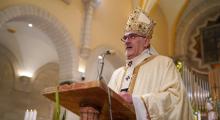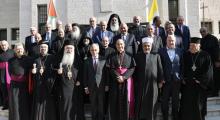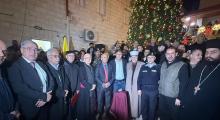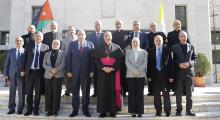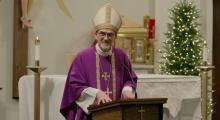Issued by the Catholic Center for Studies and Media - Jordan. Editor-in-chief Fr. Rif'at Bader - موقع أبونا abouna.org
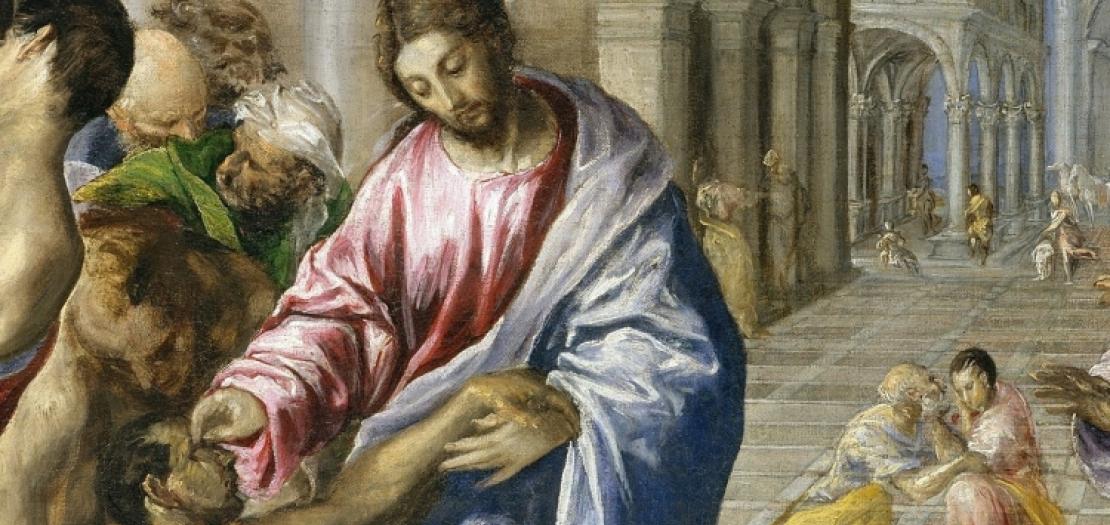
Following is the text of the meditation by Cardinal Pierbattista Pizzaballa, Latin Patriarch of Jerusalem: The 10th Sunday of ordinary time dated June 9, 2024:
Today's Gospel passage (Mark 3:20-35) brings us face to face with an obvious reality: the figure of Jesus, his actions, and his words, which create bewilderment among those who encounter him.
We are still relatively at the beginning of the Gospel narrative: Mark has recounted a typical day of Jesus, set in Capernaum; followed by the healing of a paralytic and the man with a paralyzed hand, the calling of Levi, as well as the other disciples. All this was often done on the Sabbath day, not by chance, but almost deliberately, so that a certain novelty in Jesus' way of interpreting the God-given Law has gradually become evident.
And right away, in today’s reading, we see the beginning of something that will gradually grow through the Gospel, namely a certain dismay on the part of many at this claim of Jesus to posture himself in a new and unusual way in life and his relationship with God.
What is interesting is that this concerns two very different types of people: we find Jesus' relatives, who return at the beginning and end of the passage, (Mark 3:21, 31) and a group of scribes, who came down from Jerusalem. (Mark 3:22)
What these two groups have in common is that they claim to know who Jesus is.
The relatives say that Jesus is “out of his mind.” (Mark 3:21) How did they come to this deduction?
Mark simply says that Jesus had become a well-known person: the fame of his miracles had spread, so that wherever he stopped, a large crowd would gather. And he adds an interesting note: the crowd that gathered was so large that Jesus and his disciples ‘could not even eat’. (Mark 3:20)
At this point, his disciples decide to go and get him.
The other group is that of the scribes, who had come down from Jerusalem.
They too see the same scene, and conclude that Jesus is possessed by Beelzebul, which is the leader of the demons. They recognize a power out of the ordinary, but they ascribe it not to a will for good, but for evil. (Mark 3:22)
What do these two groups of people have in common?
It seems to me that they both have their own opinion about Jesus, without it stemming from a relationship with Him. They have an opinion about Him without having asked Him any questions, without having a dialogue with him. They limit themselves to what they already know, one because of their family ties, the other because of their knowledge of the Scriptures.
Knowledge of Jesus, on the contrary, cannot happen outside of a relationship and dialogue: it is a friendship, not just one opinion among many.
And this is exactly what Jesus tries to do with the scribes: he calls them and speaks to them (Mark 3:23) because for Him there is no other way of knowing each other except through spoken words, which reveal the heart.
And in speaking with them, Jesus tells a particular parable, that of the kingdom “divided against itself” (Mark 3:23-27): a parable that serves to give His interlocutors another point of view, a key to understanding the Lord's work.
To make this transition for us as well, we enter this parable through two doors, both referring to the verb “to bind.” (Mark 3:27)
In chapter 13 of Luke's gospel, Jesus, referring to the healing of the crippled woman, when faced with the usual objection that it had taken place on the Sabbath day, responds with a rhetorical question, asking whether the woman, whom Satan had held captive for as many as eighteen years, should not be freed from this bond on the Sabbath day. (Luke 13:16)
The second gateway comes to us from the Book of Revelation (Rev. 20:1-3), where we see that the dragon, the ancient serpent, is captured by the angel and then finally bound with a great chain, so that he no longer seduces men, so that he no longer binds them to himself.
Thus, we discover that Satan himself is the strong man, who holds man captive, binding them to himself in a tie that is not for man the original one, the one that gives them life; and we discover that Jesus is the strongest man (Mark 1:7) who comes to bind Satan, so that mankind may be free from this bond.
It is then a matter of recognizing the good that always comes to our lives from the presence of the Lord.
To open oneself to this gaze is also to open to the Lord's forgiveness, a forgiveness that desires to reach everyone (Mark 3:28) except those who exclude themselves, who remain outside. (Mark 3:32)
Instead, to those who enter into a relationship with the Lord, an infinite and most rich relational possibility is opened wide, where we are for the Lord, as well as for one another, brothers, sisters, and mothers. (Mark 3:35)
+ Pierbattista


